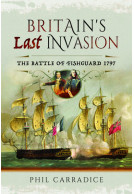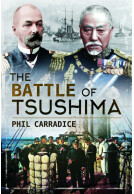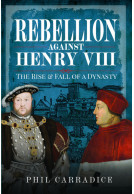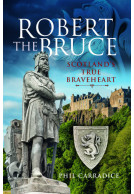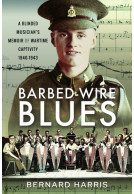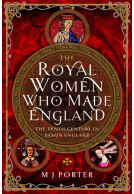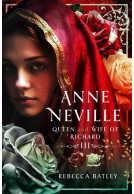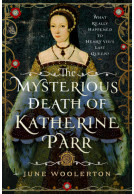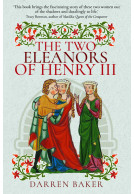A Hundred Years of Spying (Hardback)
Imprint: Pen & Sword History
Pages: 216
Illustrations: 40 black and white illustrations
ISBN: 9781526781413
Published: 30th June 2021
(click here for international delivery rates)
Need a currency converter? Check XE.com for live rates
| Other formats available - Buy the Hardback and get the eBook for £1.99! | Price |
|---|---|
| A Hundred Years of Spying ePub (11.6 MB) Add to Basket | £6.99 |
Early espionage organisations like Walsingham’s Elizabethan spy network were private enterprises, tasked with keeping the Tudor Queen and her government safe. Formal use of spies and counter spies only really began in the years after 1909, when the official British secret service was founded. Britain became the first major proponent of secret information gathering and other nations quickly followed.
The outbreak of war in 1914 saw a sudden and dramatic increase in the use of spies as the military quickly began to realise the value of covert intelligence. Spying ‘came of age’ during the war on the Western Front and that value only increased in the run up to the Second World War, when the threat of the Soviet Union and Nazi Germany began to make themselves felt.
The Cold War years, with the use of moles, defectors and double agents on both sides of the Iron Curtain saw the art of spying assume record proportions. The passing on of atom secrets, the truth about Russian missiles on Cuba, it was the age of the double agent, the activities of whom managed to keep away the looming threat of nuclear war.
A Hundred Years of Spying takes the reader through the murky world of espionage as it develops over the course of the twentieth century, where the lines of truth and reality blur, and where many real-life spies have always been accompanied, maybe even proceeded, by a plethora of spy literature.
This book will look at the use of and development of spying as an accepted military practice. It will focus on individuals from Belgians like Gabrielle Petite to the infamous Mata Hari, from people like Reilly Ace of Spies to the British traitors such as Philby, Burgess and McClean. The activities of American atom spies like the Rosenbergs will also be covered as will Russian double agent Oleg Penkovsky and many others.
Rating: 5 out of 5 stars
NetGalley, Vansa David
I love spy novels, and spy movies, and this book was an auto-buy right from the title. Excellently written, takes you through a century where countries started setting up espionage departments, and didn't rely on a few people managed by a maverick who weren't necessarily equipped to carry out the task. He gives you some historical context too, Francis Walsingham, of course, but also some very intrepid spies during the American war of independence. He traces the development of spy agencies, their methods of recruitment ( mostly trusty old boys, of course), their early difficulties with funding (Mansfield Cummings paying from his own funds several times). This could have just been a book that leapt from one anecdote to another, but it's more than that- Carradice traces the development of espionage itself, with their failures as well, and the situations and oversights that led up to those intelligence failures. THroughout the book, he interweaves it with the developments in spy fiction and in some ways, how scaremongering by spy novelists like William LeQueux increased political focus on espionage. The book takes you through developments in the 20th Century, and the ways in which spies interacted with those. I found it fascinating that he doesn't restrict himself to the usual suspects-you read about incredibly brave spies like Richard Sorge, the Lucy spy ring among others during World War 2. What's interesting is that he also chronicles spies from other countries, including Japan. As the 20th century unwinds, and the hot wars turn Cold, espionage becomes both more fantastical and more useful. Carradice continues to maintain an even keel, though, with none of the triumphalism associated with jingoistic spy novels like those written by TOm Clancy, for instance. There were no good guys really, in the Cold War, and his accounts of the "atomic spies" are quite moving. I hadn't heard of Oleg Penkovsky and Ruth Kaczyinski, and their stories are absolutely fascinating. The book both starts and ends with excellent chapters on spy fiction, which is quite fitting, for most of us that's the gateway to an interest in espionage. I can't recommend this book enough, it's a great overview of a century, and not just about the shadowy people who played their parts.
This is an interesting book looking at the art of spying and espionage. Although it is clearly stated by the author that spying did occur previously. Spying is really about the battle between sides and has long been happening as everyone wants to have some sort of advantage. Looking at the early 20th century, spying was advanced by the Great War. Spying was so important that the dangers of being found out often had deadly consequences, spying was so important/deadly because the one side didn’t know where the vital information was coming from therefore it was best to eliminate the spy. This is a great book and well written by Phil Carradice, the subject is not dreadfully boring but enlightened and made understandable by the writer.
UK Historian
Read the full review here
Fans of the TV series Spooks will be captivated by Phil Carradice's look at the history of spying during the last 100 years. Absolutely enthralling.
Books Monthly
This is a fascinating in-depth look at espionage. It traces the roots of spying, or the collecting of information to give “your side” an advantage, back to ancient history. Information has always been golden particularly when two sides are at odds. But it was early in the 20th Century that it became a science of sorts. During the build up to and the progress of WW I, it was an art form practiced by both sides. Spies could be providing detailed information or undermining the war effort or betraying one side or the other. It was a dangerous activity often with deadly results if caught and as the various events of the century changed the cast of villains, things got more and more sophisticated as the years ticked by.
NetGalley, Susan Johnston
The book gives details a lot of the framework within which the spies operated and it also tells some interesting stories about some of the more important purveyors of spying over those 100 hundred years. It was both accessible and enlightening.
The majority of this book is about spying as part on the UK Governments intelligence and counter-intelligence bureaus. There is a short preface of the history of spying related to Europe and England prior to the twentieth century but mostly it deals with the English and the agencies of other countries that spied on the UK. The best foreign coverage is that of Russia/USSR and the Cambridge Five.
NetGalley, Zeb Kantrowitz
The first agency (MI5) was chartered in 1909 and was to be a supplement to the Office of Naval Intelligence (who only dealt with other navies). Like a lot of the early agencies of European countries the people who were put in charge were there because of who they were and who they knew. If they had even a modicum of an idea of how to spy or look for other spies, it was just serendipity. As we move past the Great War, spying begins to look more like the spy novels of the time but the real agents are never as smart as the fictional ones.
As a Welshman, Carradice has no problem pointing out all of the foibles of the British Aristocrats who were in charge of Intelligence. You became a spy because your country needed you and you could learn what you needed to know, on the job. Just reading the sections on the Cambridge Five gives you an idea of what politicians thought of the "spy game" (no something any real gentleman would do).
Being a short book, 224 pages, makes it an enjoyable quick read.
In A Hundred Years of Spying Phil Carradice gives a nice overview of intelligence work during, primarily, the 20th century. This is a good introduction and suggests many opportunities for a reader to explore certain people or aspects more fully.
NetGalley, Jack Messer
As he makes clear, the act of spying did not originate in the early 20th century, but that is when it became a standard arm of a nation's defense. Prior to that spies were usually employed for specific purposes rather than an organization of spies maintaining a flow of information as a matter of course.
Carridice manages to tell the story as a coherent narrative while also highlighting certain spies and incidents. In this way the reader sees both the bigger picture of how the intelligence community developed over the years as well as the personal aspects of some of the people who played key roles.
I would recommend this for anyone wanting a good introduction and overview of modern intelligence gathering. While some with more background may not learn a lot new I think even they will appreciate the way in which this book brings the separate strands together.
About Phil Carradice
Phil Carradice is a well-known writer and historian with over 60 books to his credit. A poet, story teller and broadcaster, his most recent books are The Cuban Missile Crisis (Pen and Sword), The Call Up (Fonthill) and the novel Stargazers for Accent Press. He is a regular broadcaster on BBC Radio and TV, presents the BBC Wales History programme 'The Past Master' and is widely regarded as one of the finest creative writing tutors in Wales.
The Greatest Spy Writers of the 20th Century Buchan, Fleming and Le Carre (Hardback)
The spy novel has, over the past hundred years, become one of the most popular literary genres. The best exponents have become household names, as have their characters, heroes and villains alike. From Richard Hannay to James Bond and George Smiley, the spies and spy-hunters of fiction have developed from the printed page to grace the movie and television screens - with huge success. Uncovering the greatest or best spy writers of the Twentieth Century has not been easy. There are so many to choose from. Ultimately, however, the choice has come down to three highly significant and successful exponents…
By Phil CarradiceClick here to buy both titles for £40.00









